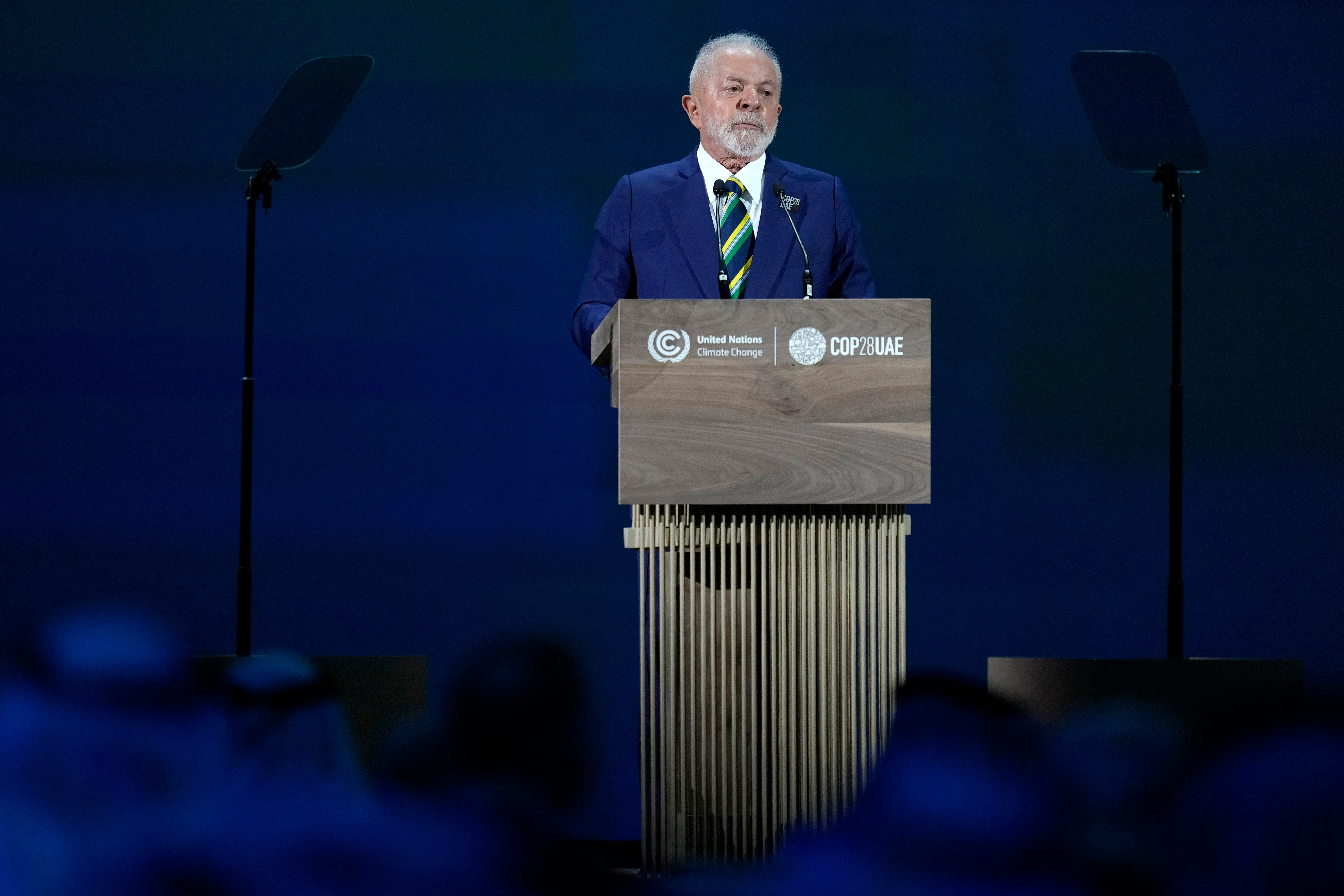Brazil approves a major tax reform overhaul that Lula says will 'facilitate investment'
Brazil’s lower house has approved a major reform of the nation’s notoriously complicated tax system

Your support helps us to tell the story
From reproductive rights to climate change to Big Tech, The Independent is on the ground when the story is developing. Whether it's investigating the financials of Elon Musk's pro-Trump PAC or producing our latest documentary, 'The A Word', which shines a light on the American women fighting for reproductive rights, we know how important it is to parse out the facts from the messaging.
At such a critical moment in US history, we need reporters on the ground. Your donation allows us to keep sending journalists to speak to both sides of the story.
The Independent is trusted by Americans across the entire political spectrum. And unlike many other quality news outlets, we choose not to lock Americans out of our reporting and analysis with paywalls. We believe quality journalism should be available to everyone, paid for by those who can afford it.
Your support makes all the difference.Brazil’s lower house has approved a major reform of the nation’s notoriously complicated tax system in a major victory for leftist President Luiz Inácio Lula da Silva, who threw his weight behind the proposal.
The long-awaited tax reform aims to simplify the system, widely considered overly burdensome for both individuals and businesses, and boost economic growth that has drifted between downturns and doldrums for the last decade.
The reform will “facilitate investment,” tweeted Lula, who celebrated the proposal’s approval late Friday and thanked Congress.
The reform — initially approved by deputies in July — had to be voted on again after the Senate made changes to the text before sending it back to the lower house.
The constitutional amendment passed easily by greater than 3-to-1 margins in both rounds of voting. When results appeared on the giant television screen in Congress, lawmakers reacted with cheers and applause.
“After more than 40 years, the country will have a modern, lean and efficient tax system that will change the country’s economy,” Speaker Arthur Lira tweeted, adding that it's not “the perfect system, but one that can be approved.”
Relations between Lula and Congress, dominated by Conservative lawmakers, have been strained. This week, Congress overturned a veto by Lula so that it can reinstate legislation that undoes protections of Indigenous peoples’ land rights.
And passage of the tax reform followed record allocations of funds to lawmakers for projects in their home states, revealing the government’s reliance on grants to drum up votes to advance its economic agenda.
But the adoption of the tax reform is nonetheless a win for Lula, whose administration made approval a priority.
It follows another recent victory for the president, who nominated Justice Minister Flávio Dino to the Supreme Court. The Senate approved that choice on Wednesday, despite opposition from lawmakers close to former far-right leader Jair Bolsonaro.
The tax reform will merge the five main levies into two value-added taxes: one federal and another to be shared between states and municipalities.
Under the current system, the five main taxes on consumption are collected at different levels of government, with the 27 federal entities and more than 5,500 municipalities imposing their own, frequently updated levies.
The system generates differences of interpretation, leading to time-consuming lawsuits and requiring companies to heavily staff accounting departments. That reduces budgets for areas like research and development and deters foreign investment.
The reform will now be signed into law in a joint session of Congress expected to take place next week.